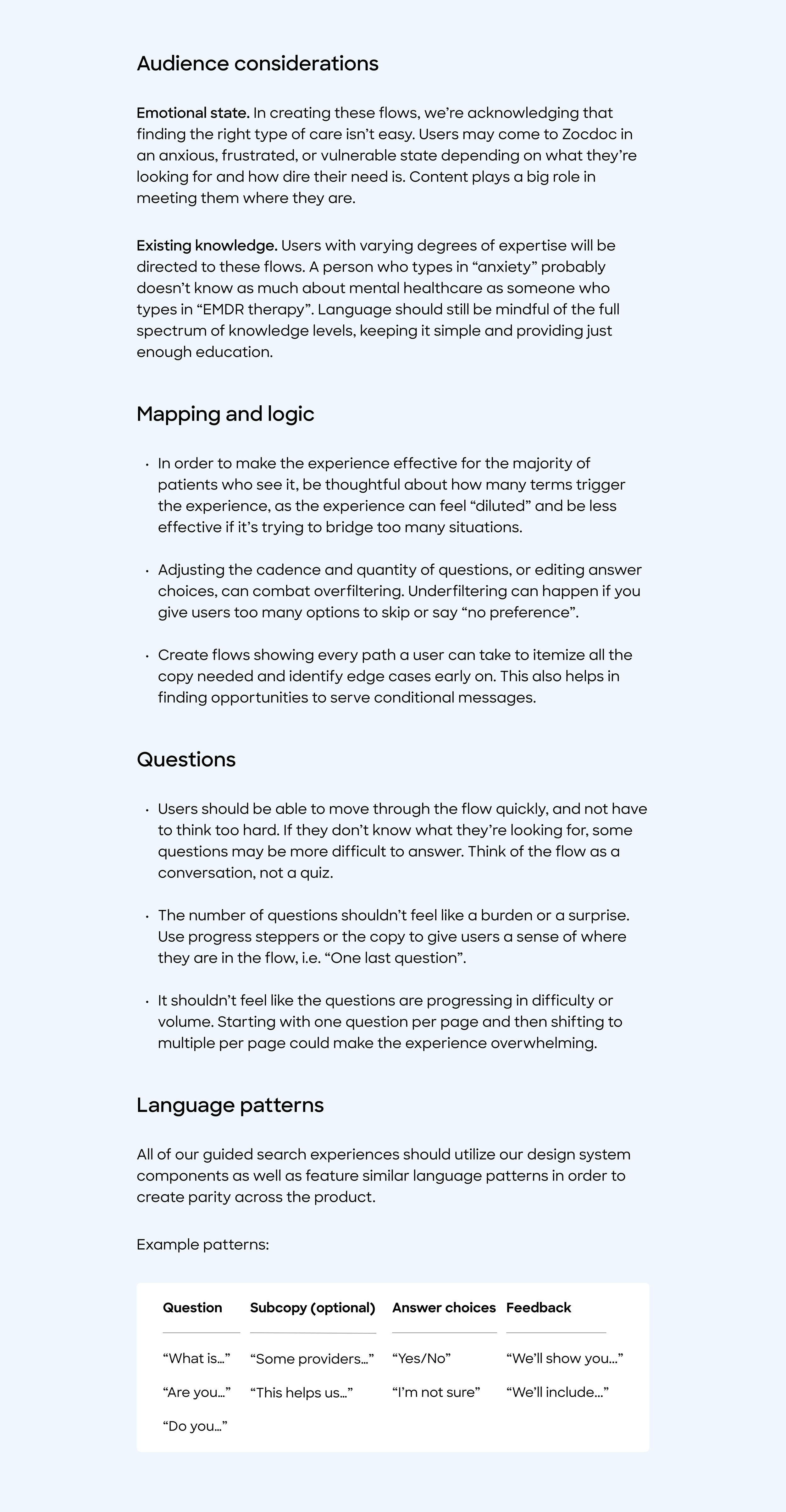Overview
Zocdoc is a medical appointment booking site that disrupted the long-standing tradition of calling doctors’ offices to set up appointments. Users can search for providers of every type of healthcare, but some areas of care are harder to navigate because there are many specializations. Orthopedic care is particularly broad, encompassing any provider that treats muscles and bones, and orthopedic practices were having to pre-screen Zocdoc patients to make sure they had booked with the right kind of doctor.
I developed an experience that guided users toward the right providers while collecting information for the doctor that could improve the visit. I also created and maintained guidelines on how to strategize and write content for guided search experiences.
Process
We interviewed enterprise orthopedic care practices to find out how Zocdoc could work better for them. They told us that these are the most important things they need to know to assess whether a patient is a fit:
What area they’re experiencing pain in
Whether they’ve previously had imaging done for the issue
Whether they’ve been told by a professional that they need surgery
We proposed a flow that would ask users a series of questions before showing them search results:
We hadn’t settled on what search terms would lead users to the flow, so I needed to write an intro screen that would orient people whether they had entered “orthopedic doctor” or “back pain”.
The diversity of users that would see this made the screen very difficult to write, and I started to get tangled up in technical definitions and the providers’ needs. Here’s one iteration of the screen before I figured out how to pare it back. I’d made it informative, but I had also made it so long that no one was going to read it. I was really looking forward to getting input from real patients.
Research
We knew that a flow like this would be helpful to providers, but we didn’t know what patients would think about providing additional information about their needs, and whether they would see value in a flow like this.
As we prepared the prototype, I defined what I wanted to gain from our interviews:
Level of education needed
On the intro screen, does the copy help them understand why they’re there, and is the level of education on orthopedic care appropriate and appreciated?
Clarity on purpose, benefits, and our role
Is it clear that this flow is about narrowing their search rather than “diagnosing” what kind of doctor they need? It’s a subtle difference, but we needed to stay away from sounding like medical experts in any way or that we were collecting their medical information.
Here’s what we tested in moderated sessions with 8 participants (click or use arrow keys to advance, and R to return to start):
Users understood right away that this was about helping them narrow search results, and felt it would be worthwhile to continue.
The “Do you need surgery?” question yielded the most extensive and interesting feedback.
“For me I’d say no, I’m at the tail end of my healing.”
“Maybe if I’d been told by someone I’d say yes, but I may want a second opinion.”
“How would I know if I need surgery? That’s why I’m here.”
“I like ‘No’ and showing doctors that do other treatments so that surgery isn’t the only answer to the problem.”
People answered differently based on where they were in their care journey, and questioned “needing” surgery.
Research led us to make some significant changes. Here’s the final flow:




